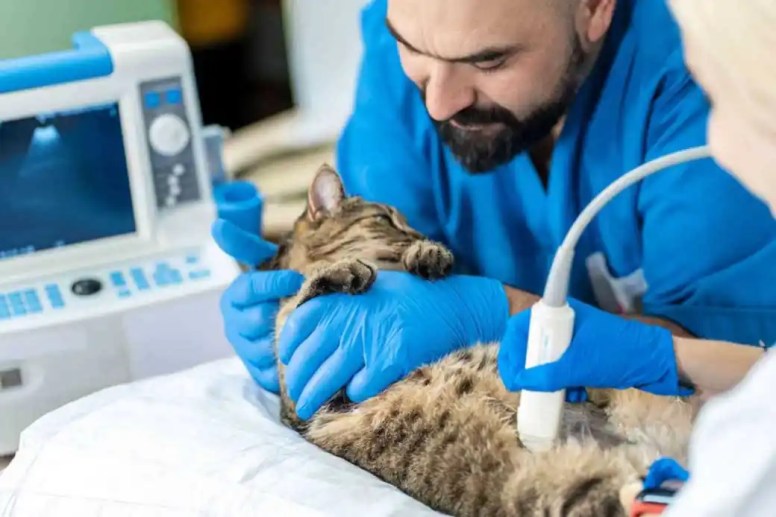Why Vet Enterprise Is the Leading Option for Top Quality Pet Treatment in Your Location
Why Vet Enterprise Is the Leading Option for Top Quality Pet Treatment in Your Location
Blog Article
Inoculation Guidelines From Your Trusted Vet
Vaccination guidelines provided by your trusted veterinarian play a vital function in safeguarding your family pet's wellness and health. Core vaccines are basic for all pets, while non-core vaccines can be tailored to details lifestyles and environmental direct exposures. Comprehending the subtleties of inoculation schedules, which start as early as six to 8 weeks, is important for optimal security. Additionally, resolving usual misconceptions surrounding vaccines can further boost animal proprietors' confidence in these preventative procedures. As we check out these important aspects, it ends up being progressively clear why normal appointments with your vet are essential for notified decision-making.

Value of Vaccinations
Inoculations play a crucial function in protecting pets against a series of preventable diseases. By boosting the immune system to acknowledge and fight certain pathogens, vaccines considerably minimize the incidence of contagious conditions that can affect an animal's wellness and longevity. Not only do inoculations secure individual animals, yet they likewise add to herd resistance, thereby minimizing the general frequency of conditions in the animal populace.
Timely vaccinations aid to reduce the spread of illness such as rabies, parvovirus, and distemper, which can have serious effects for both family pets and people. Moreover, inoculations are typically a need for boarding facilities, grooming services, and canine parks, making them crucial for those that wish to mingle their pets.

Core Vaccinations for Animals
While the specific vaccination demands of animals can vary based upon private elements, core vaccinations are generally recommended to protect versus the most major and typical diseases (Pet Health Checkup). Core injections are those deemed essential for all pet dogs, regardless of their way of living or geographical location, as they guard against possibly deadly and highly infectious health problems
For pet dogs, the core vaccines include those for canine distemper, parvovirus, adenovirus (hepatitis), and rabies. Adenovirus can result in liver illness, while rabies is a zoonotic illness that poses a risk to both humans and animals.
In pet cats, core vaccines encompass feline panleukopenia, feline calicivirus, feline herpesvirus (rhinotracheitis), and rabies. Feline panleukopenia is a very contagious viral illness that impacts the body immune system and intestinal tracts. Calicivirus and herpesvirus are significant contributors to upper breathing infections in felines, while rabies remains a critical concern for public health.
Consult with your veterinarian to guarantee your pet dogs get their core vaccinations on time.
Non-Core Vaccines Explained
Non-core vaccines are tailored to address specific threats connected with a pet dog's atmosphere, direct exposure, and way of living to certain conditions. Unlike core vaccinations, which are generally suggested for all animals, non-core vaccines are thought about based on private situations. These vaccines are specifically crucial for family pets that may come across distinct pathogens as a result of their geographical area, traveling habits, or tasks.
Examples of non-core vaccines consist of those for Bordetella bronchiseptica, which is linked to kennel cough, and Lyme illness, brought on by ticks. Animals that frequently engage with other pets, such as those in boarding centers, pet parks, or grooming atmospheres, might gain from Bordetella vaccination. If you live in a location where Lyme disease is prevalent, immunizing against this condition can be a sensible option for outdoor-loving canines.
Other non-core injections might include those for leptospirosis, canine flu, and feline leukemia, relying on the specific danger variables present. It is vital to have an extensive conversation with your veterinarian regarding your pet's way of life and the possible need for these injections, making certain a tailored inoculation approach that best safeguards your fuzzy pal.
Vaccination Arrange Introduction

As animals develop, it is very important to abide by the recommended booster inoculations. Veterinarian Enterprise. For adult pets, core vaccines are normally given every one to 3 years, depending on the certain vaccination and neighborhood policies. Non-core vaccinations may be encouraged based upon way of living factors and local disease prevalence, requiring a tailored technique
Regular veterinary examinations are essential for updating vaccination timetables. Your veterinarian can offer support on the most proper immunizations for your family pet, considering age, wellness link standing, and environmental risks. By staying proactive and informed, pet owners can guarantee their fuzzy buddies get reliable and prompt inoculations, therefore guarding their health and well-being throughout their lives.
Common Myths About Vaccinations
Misconceptions about animal vaccinations can result in confusion and reluctance amongst pet dog owners relating to the booster shot process. One widespread myth is that vaccinations are unneeded for indoor pets. While it holds true that indoor pets face reduced dangers, they are not completely immune to diseases, as virus can visit here be presented through numerous methods, consisting of human garments and other pet dogs.
One more false impression is that vaccinations can trigger the diseases they intend to avoid. In truth, most vaccinations include suspended or attenuated microorganisms, which can not cause condition in healthy pets. Some animal owners also think that their animals should not be immunized if they are currently healthy; nevertheless, vaccinations are a positive step that helps protect against the onset of ailment.
Additionally, numerous pet dog owners fear that vaccines will lead to long-term health and wellness difficulties. The advantages of inoculation-- protecting animals from possibly life-threatening diseases-- far surpass the threats.
Conclusion
In summary, adherence to vaccination standards is essential for ensuring the health and long life of animals. Resolving typical misconceptions bordering vaccinations better reinforces the relevance of informed you could try these out decision-making in pet treatment.
Not only do vaccinations shield private pets, yet they also contribute to herd resistance, thereby lowering the general frequency of diseases in the family pet population.
Mistaken beliefs about family pet inoculations can lead to confusion and unwillingness among pet proprietors regarding the immunization procedure. While it's true that interior pets face lower dangers, they are not entirely immune to diseases, as pathogens can be introduced with various ways, consisting of human apparel and various other pets.
Some pet dog owners also believe that their family pets need to not be vaccinated if they are already healthy and balanced; nonetheless, inoculations are a proactive procedure that aids stop the onset of health problem.
The advantages of vaccination-- safeguarding pets from potentially lethal conditions-- far exceed the dangers.
Report this page